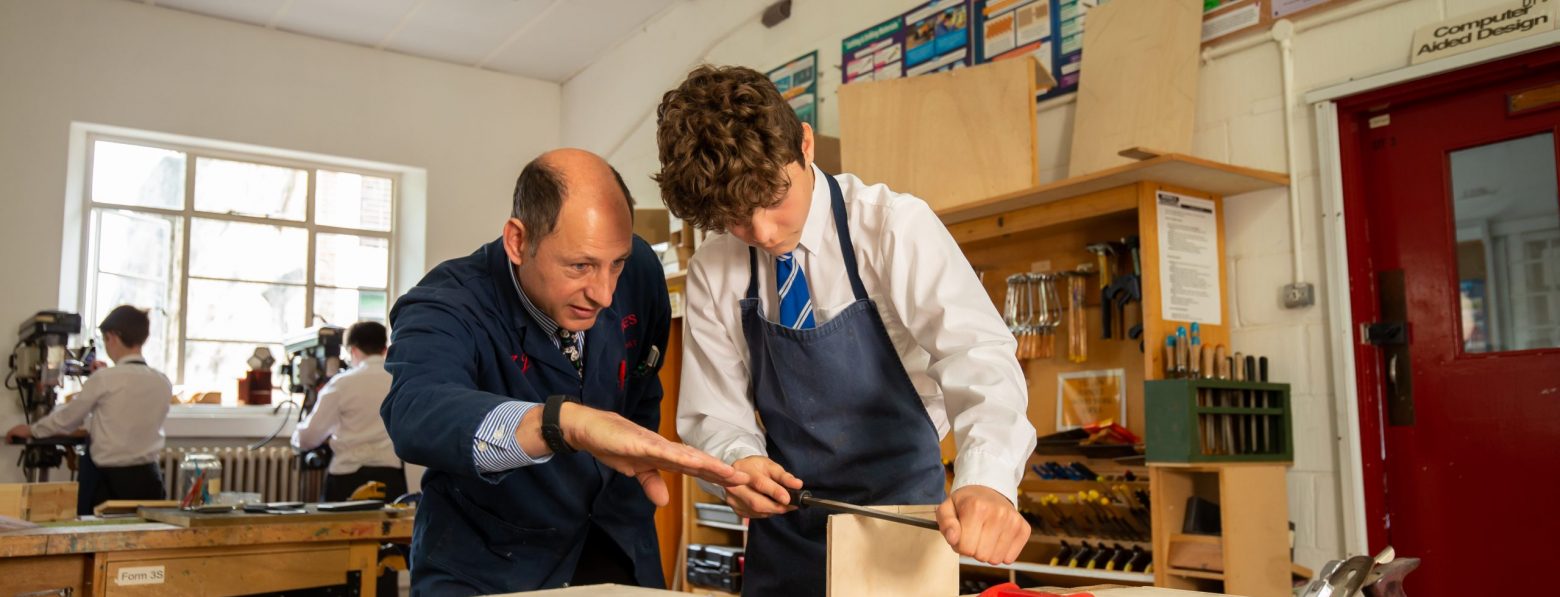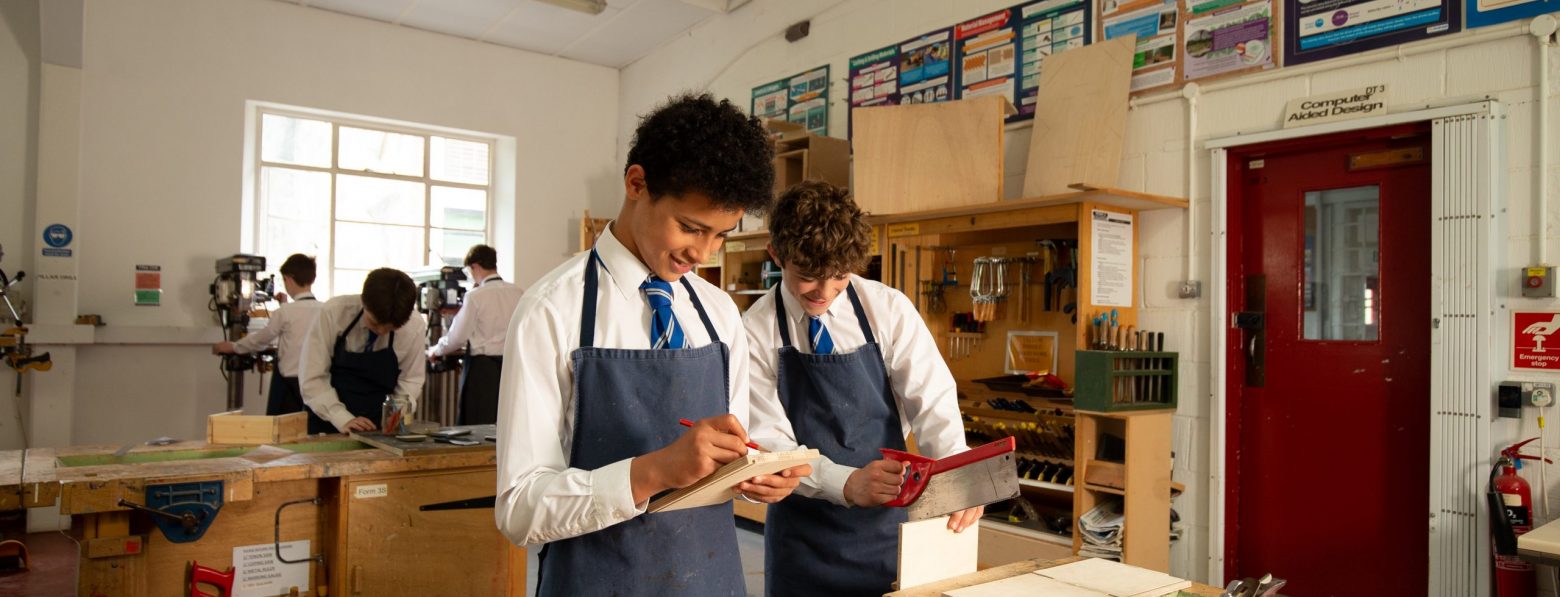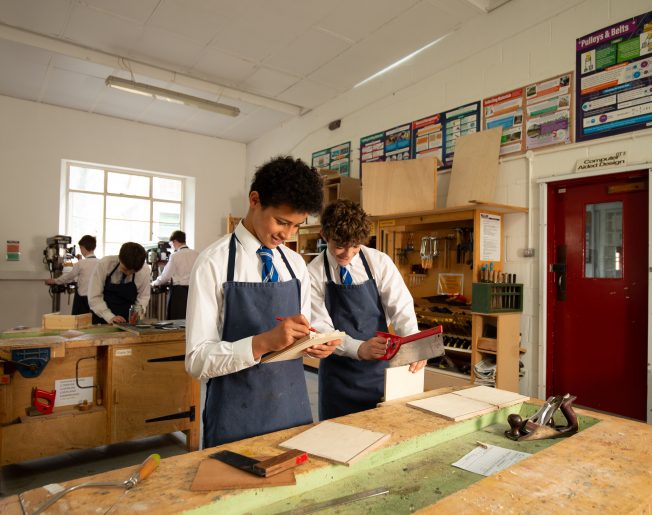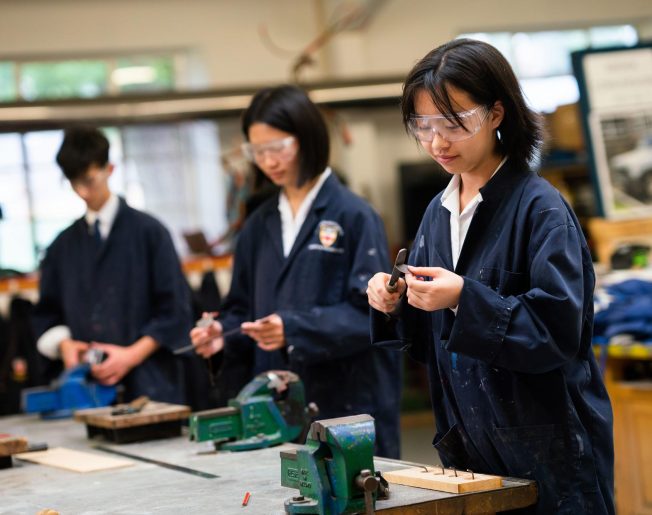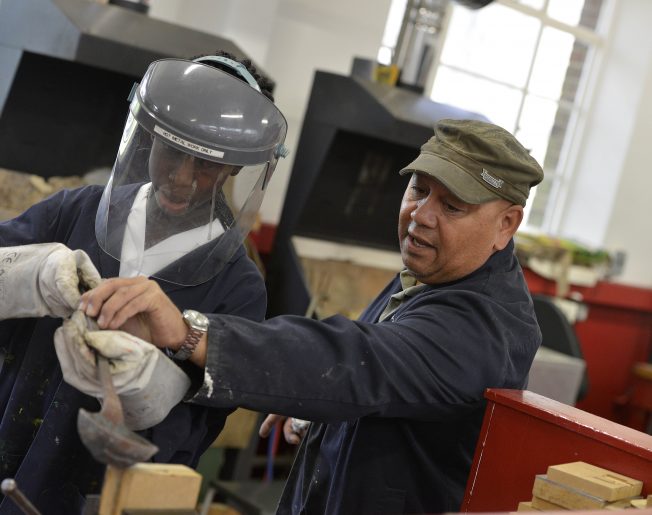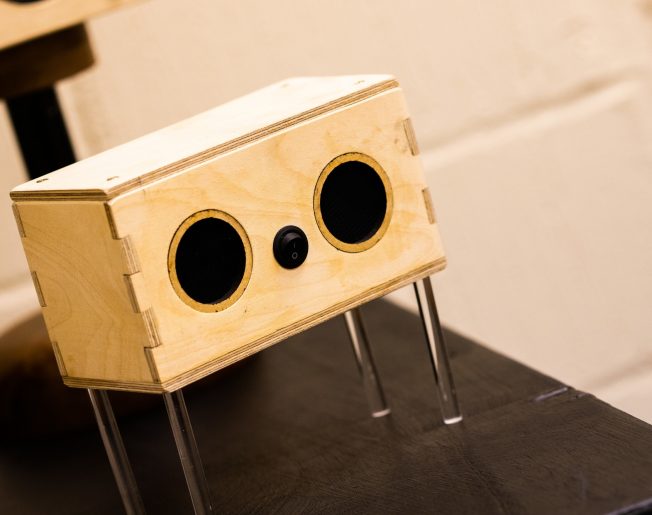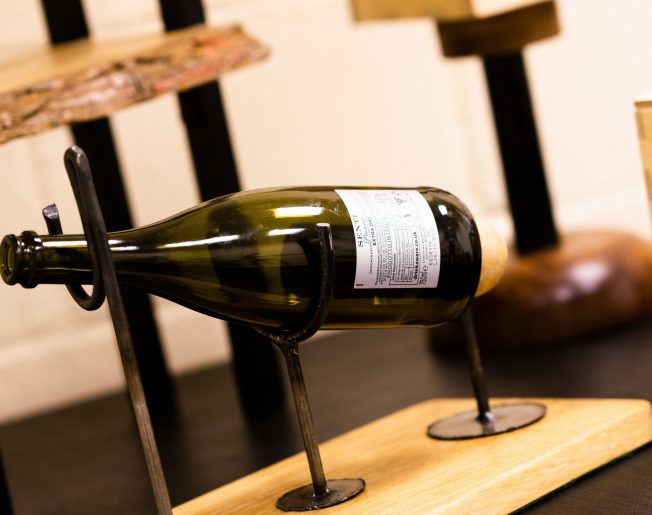Design Technology
Design Technology
At King Edward’s pupils learn to design and make products that solve genuine, relevant problems within different contexts whilst considering their own and others’ needs, wants and values. In doing this they acquire a broad range of subject knowledge and draw on additional disciplines such as mathematics, science, engineering, computing and art.
1st Form and 2nd Form enjoy Design Technology (DT) as part of their core curriculum. The basic skills of all disciplines are taught in realistic problem-solving situations. Pupils are introduced to the design process, learn drawing and modelling techniques, workshop safety, and then make projects generally in wood, plastic, and metal, using hand and power tools, Computer Aided Design and Manufacture (CADCAM).
3rd Form build on this and study certain aspects of the GCSE curriculum which helps decide if they want to pursue GCSE Design Technology.
- GCSE: This course prepares pupils to participate confidently and successfully in an increasingly technological world. Pupils study core technical and design principles, including a broad range of design processes, materials techniques and equipment.
- A-level: This creative and thought-provoking qualification gives pupils the practical skills, theoretical knowledge and confidence to succeed in several careers, especially those in the creative industries. You will investigate historical, social, cultural, environmental and economic influences on design and technology, whilst enjoying opportunities to put your learning in to practice by producing products of your choice. Pupils will use their creativity and imagination to design and make prototypes that solve real and relevant problems, considering their own and others’ needs, wants and values. Students will gain a real understanding of what it means to be a designer, alongside the knowledge and skills sought by higher education and employers. Whilst it helps to have studied this subject in the past, it is not essential. An interest in the man-made world around you is though! The practical application of technical principles, designing and making principles is reinforced through a substantial design and make project, which forms 50% of the assessment.




